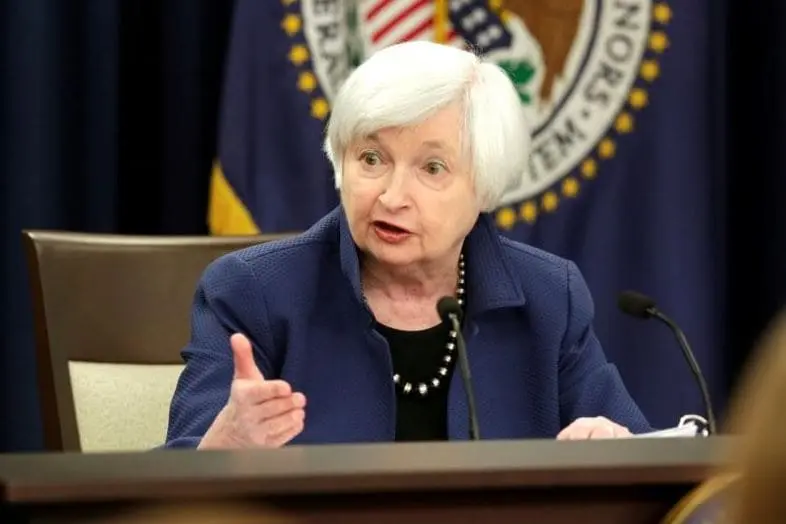Treasury Secretary Janet Yellen stated on Friday that the United States is likely to possess sufficient reserves to postpone a potential debt default until June 5.
In a letter addressed to House Speaker Kevin McCarthy, Yellen wrote, “We now estimate that Treasury will have insufficient resources to satisfy the government’s obligations if Congress has not raised or suspended the debt limit by June 5.”
The revised date on Friday provided some much-needed leeway for negotiations between the White House and congressional Republicans, who appeared to be nearing a compromise agreement to raise the debt ceiling for a two-year period.
The previous update on the so-called “X date” was made on May 1 when Yellen informed Congress that the United States had enough cash available to meet its obligations until “early June, and potentially as early as June 1.”
Friday’s letter marked the first instance since Yellen began sending regular updates to Congress in January that the secretary did not qualify the date with a phrase like “as early as.”
Instead, Yellen explained that Treasury would be making over “$130 billion of scheduled payments in the first two days of June,” leaving the agency with “an extremely low level of resources.”
Yellen continued by stating that during the week of June 5, Treasury is scheduled to make an estimated $92 billion of payments and transfers, and their projected resources would be inadequate to fulfill all of these obligations.
To emphasize the diminished reserves of the Treasury, Yellen mentioned that the agency had resorted to utilizing an obscure measure on Thursday by transferring $2 billion from a civil service retirement fund to the government’s main borrowing institution, the Federal Financing Bank.
This action was deemed necessary because “the extremely low level of remaining resources demands that I exhaust all available extraordinary measures to avoid being unable to meet all of the government’s commitments,” Yellen explained.
Market closures on Friday showed an upward trend, partially fueled by optimism that a deal would be passed by the House and Senate and subsequently signed by the president by June 1.
However, as talks extended throughout the week with little more than vague claims of “progress” from the involved parties, optimism waned regarding the possibility of reaching an agreement by the end of Friday.
Officials stated that Friday was widely perceived as the final possible day to reach a deal while still allowing enough time to draft it into legislation, pass it in the House, and then pass it in the Senate before the previous “X date” of June 1.
Yellen’s updated date came amidst growing concerns worldwide regarding the U.S. credit rating.
On Wednesday, the Fitch credit rating agency announced that it had placed the United States’ triple-A status on “rating watch negative.”
On Friday, in a preliminary annual assessment of the United States by the International Monetary Fund (IMF), officials wrote that “brinkmanship over the federal debt ceiling could create a further, entirely avoidable systemic risk to both the U.S. and the global economy.”
Even a technical default by the United States, even for a few days, could lead to increased interest rates and undermine confidence in the U.S. dollar. Economists point out that America’s adversaries, particularly Russia and China, are closely observing the ongoing debt limit standoff with satisfaction, knowing that a decline in trust in the U.S. dollar would work to their advantage.













